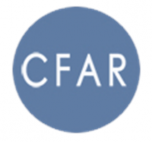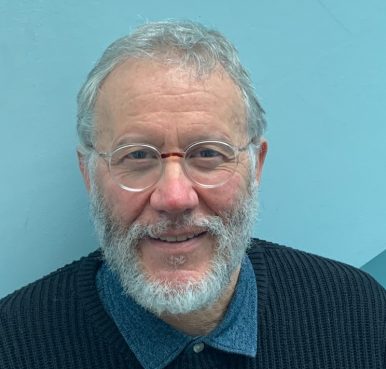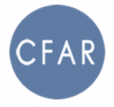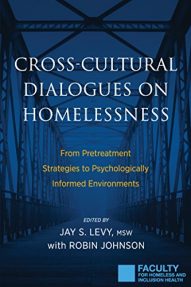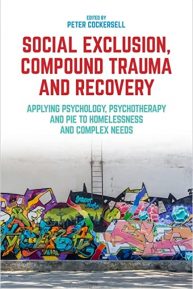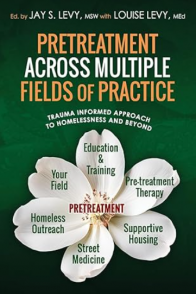Welcome to
Psyharmonia
John Conolly, UKCP reg Psychoanalytic Psychotherapist, Lacanian Analyst, M.A.
(Psychoanalysis), M.A. (Organisational Psychology), B.A. (Psychology).
Hello and welcome to my website. My name is John Conolly and I am a United Kingdom Council for Psychotherapy (UKCP) registered Psychoanalytic Psychotherapist, and Lacanian Analyst in Haringey, North London. I have worked twenty years in the NHS as a counsellor and I have taught at the Tavistock and Portman NHS Trust, and the Middlesex University, Mental Health Departments.
Mental pain has many reasons and expresses itself in many ways.
From twenty three years of working in the NHS with people who have been marginalised, traumatised and disempowered, I know how lonely mental pain makes us feel and how impossible it is to reach out for help. Also how confusing the different labels of counselling, psychotherapy, psychoanalyst are for people.
Counselling can really help those who have generally enjoyed good emotional and psychological health but in the face of stressful events, find themselves unable to cope for a while. It supports people to express their thoughts and emotions when they are all confused and jumbled up, or when numb through shock or depression. It can help find or learn new practical ways of dealing with situations and people. It is generally shorter and less intense than psychotherapy or psychoanalysis. It can involve less personal change.

Psychotherapy can help when people keep on experiencing difficult situations in their lives, maybe due to problems in their childhood. Here it can help people change their usual ways of reacting, which may add to their problems, maybe by becoming aggressive, or developing an addiction, and help them learn new personal ways of coping – change here would not only be practical as in learning new problem solving methods, but also psychological and personal. It would in general last longer and be more intensive, as personal change is involved.
Psychoanalysis, especially helps with problems in childhood, but also with a general lack of purpose or meaning in life. Someone may have everything they need to be happy, but somehow feel that they are not. They may not feel unhappy or stressed, simply nothing excites them anymore, or they feel ’empty’, that they do not exist. Psychoanalysis can be long and intense, but extremely rewarding. It focuses on those aspects of a person they are totally unaware of, those messages they soaked up in childhood which somehow impacts their daily lives and sense of self still. It may clarify unknown wishes and conflicts Psychoanalysis involves FUNDAMENTAL personal change.

Supervision
Here, I support other psychotherapists to process their work experience, clarify their thinking and help free up and deepen their therapeutic practice
Training
Trauma, depression, pain, suffering, impacts our ability to express ourselves and to communicate. In order to help colleagues connect more, I was commissioned to develop a ‘Trauma Informed Communication Skills’ Training package which I have delivered to GP surgeries, NHS services and Charities. NHS England have just invited me to pilot this with a view to a possible more extensive primary care sector roll out.
Consultancy
I provide consultancy services for both staff and management in Charities and the NHS.
Services
Counselling
‘OUR GREATEST GLORY IS NOT IN NEVER FALLING, BUT IN RISING EVERY TIME WE FALL’.
CONFUCIUS
We all fall sometimes and counselling helps us pick ourselves up again.
I offer face to face, online or telephone counselling, Sessions last on average 45 mins, but may vary according to what is happening in the session.
One session a week is usually considered counselling.
Fees
My standard fee for a session is £90
Contact
Contact me by calling, or emailing me so that we may further discuss.
Psychotherapy
‘WHEN WE ARE NO LONGER ABLE TO CHANGE A SITUATION – WE ARE CHALLENGED TO CHANGE OURSELVES.‘
VIKTOR E. FRANKL
Sometimes, we can keep on falling down, or the pain of falling down is such that we are deeply hurt and/or lash out, making it much more likely that we fall down again. Psychotherapy can help us change our reactions so that we are much less prone to fall again, or fall less hard.
I work in a similar way as to when I offer counselling to someone, but because psychotherapy involves personal change, seeing oneself and the world differently, it usually takes longer and is more intense.
Two sessions weekly is usually considered psychotherapy.
Fees
My standard fee for a session is £90 but this is negotiable depending on the agreed weekly number of sessions
Contact
Contact me by calling, or emailing me so that we may further discuss
Lacanian Psychoanalysis
‘I SPEAK WITHOUT KNOWING IT. I SPEAK WITH MY BODY AND I DO SO UNBEKNOWNST TO MYSELF. THUS I ALWAYS SAY MORE THAN I KNOW’
JACQUES LACAN
Psychoanalysis helps us become aware of those wishes, actions, beliefs, we are usually not aware of and which are in conflict with the image we have of ourselves. It can help us understand, why despite despite social success for example, we nevertheless feel a failure. It helps us say what we have never been able to say to ourselves, let alone to others. Jacques Lacan was a French Psychiatrist whose innovative School of Psychoanalysis became especially popular in Continental Europe and South America, and increasingly so here in the UK, where there are now several training centres in London, including CFAR ( Centre for Freudian Analysis and Research) a member of the UKCP (United Kingdom Council for Psychotherapy), Council of Psychoanalysis and Jungian Analysis College. Some of his innovations included the ‘variable length session’ and working with people whose suffering was expressed in symptoms some would describe as ‘psychiatric’, like hallucinations.
Freud introduced lying on the Couch to lessen the pressures of social interaction and encourage the free flow of thoughts, associations, and fantasies, the pathways to the Unconscious.
I work with the Couch but after a period of face to face counselling/therapy first, in order for us to establish whether this way of working is the most suitable for You or not.
Two to five sessions weekly are usually considered to be a Psychoanalysis.
Fees
My standard fee for a session is £90 but this is negotiable depending on the agreed weekly number of sessions
Contact
Contact me by calling, or emailing me so that we may further discuss.
Consultancy and Training
‘A CHAIN IS ONLY AS STRONG AS ITS WEAKEST LINK’
Consultancy
Several GP surgeries and Charities have asked me to provide their multi disciplinary teams with ‘Reflective Practice Sessions’, in order to debrief from difficult situations and explore if anything could be learnt from them and brought to bear in future situations. My style is facilitative, but also quite pro-active, in that I seek to enable people to have the confidence to speak their experiences, feelings and thoughts.
NHS services have also sought ‘ Staff support’ sessions to help staff feel less stressed, conflicted and demotivated. My approach is similar here, but with a focus on staff interactions.
Fees
Initial telephone conversation free
Fees to be discussed
Contact
Contact me by calling, or emailing me so that we may further discuss.
Training
“Knowing is not enough; we must apply. Willing is not enough we must do.”
Goethe
Through many years of counselling practice in specialist homelessness services I noticed how often people reported difficult or confrontational interactions with mainstream services: in housing departments, in hospitals, with the police and so on. These interactions very often seemed to ‘re-trigger’ trauma based reactions in the moment and, because of the negative outcomes, contributed to increasing people’s feelings of profound exclusion and marginalisation.
I was asked by a leading national healthcare for homeless people charity to develop a training for public facing staff to better understand what might be happening in these interactions and to have the confidence and skills to respond in a more compassionate, ‘trauma informed’ manner.
‘Trauma Informed Communications Skills’ is to be piloted with NHS England and will thereafter be available online.
Fees
Initial telephone conversation: free
Fees to be discussed
Contact
Contact me by calling, or emailing me so that we may further discuss.

What I Offer
I offer counselling, psychotherapy, Lacanian Psychoanalysis, clinical supervision both individual and group, and consultancy. Being bi-lingual in French, I also work in that language.
I can help with: complex (chronic multiple) trauma; abuse, both in childhood ( emotional, physical and sexual) and in adulthood like domestic violence, victimisation, rape, bullying at work; life transitions like redundancy, recovering from an accident, assault, illness, operation, disability, separation, divorce, bereavement (frozen, complex and traumatic), addictions, anger, mood fluctuations, anxiety, depression, low self-esteem, personality issues, a sense of meaninglessness and lack of purpose/direction, a lack of self-assertion; Depression
About Me
Being raised both in French and English Cultures, I have always been fascinated with how people experienced and lived their subjectivity, and how they made sense of it or not. At school I loved literature and studied languages; at University I studied Psychology and Organisational Psychology, and eventually found my way to Psychoanalysis when I trained with The Centre for Freudian Analysis and Research (CFAR), registered with the UK Council for Psychotherapy (UKCP) and studied for an M.A. in Psychoanalysis.
My many years of working with people in great distress have convinced me that major ingredients in healing are the quality of relationship which is enabled to develop and the listening which is offered.
My expertise lies in the area of complex trauma. I have helped manage a counselling charity for homeless people, worked eight years as a (French) bi-lingual counsellor at a Mental Health NHS trust, and for the last fifteen years have led a central London NHS Trust Counselling Service. I have also taught at the Tavistock and Portman NHS Trust, and the Middlesex University, Mental Health Departments.
I have spoken extensively at conferences and authored several chapters and journal articles on, ‘Pre-treatment Therapy’, an approach which enables extremely distressed people to gradually make use of counselling and psychotherapy. Several NHS psychological services have been recently commissioned to deliver ‘Pre-treatment Therapy’ across the country. I am passionate about enabling sustainable recovery and was chair of the Camden & Islington NHS Foundation Trust, Recovery College from 2019 to 2022.
I was commissioned as clinical fellow to the leading national charity on homeless and inclusion health 'Pathway' to develop a ‘Trauma Informed Communications Skills’ training programme, to be delivered to NHS England, (amongst others).
I am presently working on a book entitled ‘Stories from the Basement – A Psychotherapist’s Reflections on Caring for Homeless People and the Obstacles to Compassion’.
I am keen to share my expertise with people who may not want to use the NHS due to long waiting lists, the (mostly) short-term nature of the support available, or simply not wishing to have this included in their medical record.
Publications (as contributor)
Get in touch
Feel free to contact me if you have any questions about the services I offer or to arrange an initial assessment call. This enables us to discuss the reasons you are thinking of coming to therapy, whether it could be helpful for you and whether I am the right therapist to help.
You can also call me on 07438669713 if you would prefer to leave a message or speak to me first.
My practice is located in Haringey, North London. The nearest tube stations are 'Manor House' and 'Turnpike lane' on the Piccadilly line. The nearest train stations are: Harringay Green Lanes, Harringay, and Hornsey. Bus lines include: 29, 141, 341, N29, and 144. There is free parking after 6.30pm weekdays, and all day weekends.
©2022 John Conolly
powered by WebHealer

